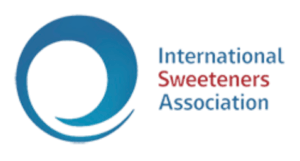Aspartame Consumption for 12 Weeks Does Not Affect Glycemia, Appetite, or Body Weight of Healthy, Lean Adults in a Randomized Controlled Trial
Abstract Background: Low-calorie sweeteners are often used to moderate energy intake and postprandial glycemia, but some evidence indicates that they may exacerbate these aims. Objective: The trial’s primary aim was to assess the effect of daily aspartame ingestion for 12 wk on glycemia. Effects on appetite and body weight were secondary aims. Methods: One hundred lean [body mass […]
Diabetes UK evidence-based nutrition guidelines for the prevention and management of diabetes (2018)
Abstract A summary of the latest evidence-based nutrition guidelines for the prevention and management of diabetes is presented. These guidelines are based on existing recommendations last published in 2011, and were formulated by an expert panel of specialist dietitians after a literature review of recent evidence. Recommendations have been made in terms of foods rather […]
Effect of high milk and sugar-sweetened and non-caloric soft drink intake on insulin sensitivity after 6 months in overweight and obese adults: a randomized controlled trial
Abstract Background/Objectives: Milk contributes with saturated fat, but randomized controlled studies (RCT) on the effects of dairy on risk of type-2 diabetes (T2D) where dairy is given as whole foods are scarce. The objective of our study was to investigate the long-term effects of semi-skimmed milk on insulin sensitivity and further to compare milk with sugar-sweetened […]
Academy of Nutrition and Dietetics Nutrition Practice Guideline for Type 1 and Type 2 Diabetes in Adults: Nutrition Intervention Evidence Reviews and Recommendations
Abstract No abstract available. Summary The US Academy of Nutrition and Dietetics (AND) Nutrition Practice Guideline (NPG) for Type 1 and Type 2 Diabetes in Adults is a newly developed guideline, providing updated evidence-based recommendations about Medical Nutrition Therapy (MNT) in diabetes management. Nutrition therapy plays a critical role in managing both types of diabetes, […]
Do non-nutritive sweeteners influence acute glucose homeostasis in humans? A systematic review
Abstract The human body associates sensory cues with metabolic consequences. Exposure to sweet-tasting sugars – even in the absence of ingestion – triggers physiological responses that are associated with carbohydrate digestion, absorption and metabolism. These responses include the release of insulin and incretin hormones, which work to reduce blood glucose. For this reason, non-nutritive sweeteners […]
Consumption of Low-Calorie Sweetened Beverages Compared to Water Is Associated with Reduced Intake of Carbohydrates and Sugar, with No Adverse Relationships to Glycemic Responses: Results from the 2001–2012 National Health and Nutrition Examination Surveys
Abstract Although the 2015 Dietary Guidelines Advisory Committee concluded that there was moderate evidence that substituting sugar-containing sweeteners with low-calorie sweeteners (LCS) reduces calorie intake and weight, dietary recommendations encourage substituting only water for sugar-sweetened beverages during weight management. This cross-sectional study evaluated the relation of water and no- and low-calorie sweetened beverage (LCSB) intake […]
A 12-week randomized clinical trial investigating the potential for sucralose to affect glucose homeostasis
Abstract The discovery of gut sweet taste receptors has led to speculations that non-nutritive sweeteners, including sucralose, may affect glucose control. A double-blind, parallel, randomized clinical trial, reported here and previously submitted to regulatory agencies, helps to clarify the role of sucralose in this regard. This was primarily an out-patient study, with 4-week screening, 12-week […]
American Diabetes Association® 2017 Standards of Medical Care in Diabetes: Lifestyle management
Abstract American Diabetes Association® Releases 2017 Standards of Medical Care in Diabetes. Comprehensive, annual guide includes new and updated recommendations to safeguard the physical and psychological health of people with diabetes. The Standards are established and revised annually by a Professional Practice Committee. No abstract available. Summary Nutrition therapy is a fundamental aspect of diabetes […]
Sugar-Sweetened Beverage but Not Diet Soda Consumption Is Positively Associated with Progression of Insulin Resistance and Prediabetes
Abstract Background: Previous studies have shown an inconsistent relation between habitual beverage consumption and insulin resistance and prediabetes. Objective: The objective of the present study was to test the hypothesis that the consumption of sugar-sweetened beverages (SSBs), rather than diet soda, is associated with long-term progression of insulin resistance and the development of prediabetes. Methods: We analyzed the […]
Sweetened beverage intake and risk of latent autoimmune diabetes in adults (LADA) and type 2 diabetes
Abstract OBJECTIVE: Sweetened beverage intake is associated with increased risk of type 2 diabetes, but its association with autoimmune diabetes is unclear. We aimed to investigate sweetened beverage intake and risk of latent autoimmune diabetes in adults (LADA); autoimmune diabetes with features of type 2 diabetes. DESIGN/METHODS: Data from a Swedish population-based study was used, including incident […]


